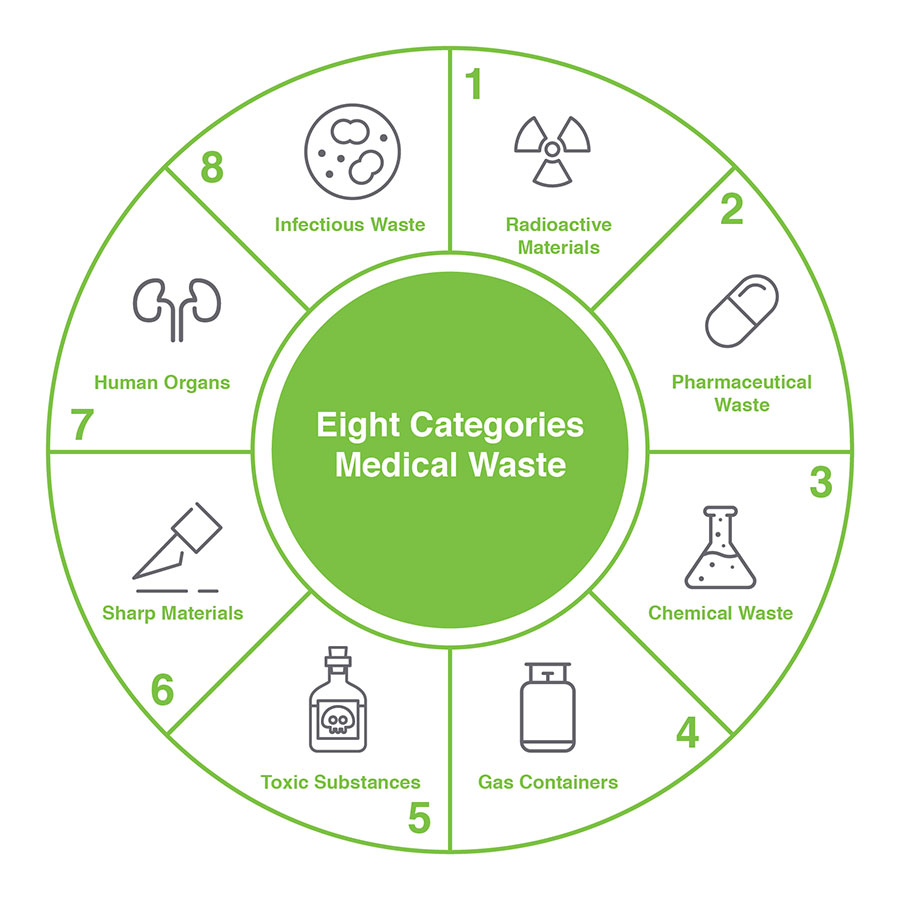In recent years, the healthcare industry has witnessed a significant shift towards sustainable practices, and medical waste management is no exception. Leveraging digital innovation has emerged as a key strategy to enhance sustainability in this critical area. In this article, we explore how digital solutions are revolutionizing medical waste management and the crucial role they play in promoting sustainability.
Digital Waste Tracking Systems: Traditional paper-based waste tracking methods are prone to errors and inefficiencies. Digital waste tracking systems offer a more accurate and streamlined approach to managing medical waste. By utilizing barcodes, RFID tags, or mobile applications, healthcare facilities can track waste generation, collection, and disposal in real time. This level of visibility enables better decision-making, reduces the risk of compliance issues, and ultimately contributes to a more sustainable waste management process.
Cloud-Based Data Analytics: Cloud-based data analytics platforms empower healthcare facilities to analyze large volumes of waste data quickly and efficiently. By leveraging advanced analytics tools, facilities can identify trends, patterns, and areas for improvement in their waste management practices. Insights gained from data analysis can inform strategic decision-making, optimize resource allocation, and drive continuous improvement initiatives aimed at reducing waste generation and environmental impact.
Remote Training and Education: Digital technology has transformed the way healthcare professionals receive training and education on medical waste management practices. Remote training platforms offer convenient access to educational resources, interactive modules, and virtual simulations. Healthcare staff can undergo training sessions from anywhere, at any time, leading to improved knowledge retention and adherence to sustainable waste management practices. By investing in remote training solutions, healthcare facilities can ensure that their staff are equipped with the necessary skills and knowledge to contribute to sustainability efforts.
Smart Waste Sorting Technologies: Traditional waste sorting processes are labor-intensive and time-consuming. Smart waste sorting technologies leverage artificial intelligence and machine learning algorithms to automate the sorting and segregation of medical waste. These technologies use sensors and imaging systems to identify and categorize waste items based on their composition and characteristics. By automating waste sorting processes, facilities can improve efficiency, reduce contamination, and increase the effectiveness of recycling and resource recovery initiatives.
Stakeholder Engagement Platforms: Sustainability in medical waste management requires collaboration and engagement from all stakeholders involved. Digital platforms provide a centralized hub for communication and collaboration among internal and external stakeholders, including healthcare staff, waste management professionals, suppliers, and regulatory agencies. These platforms facilitate transparent communication, knowledge sharing, and idea generation, fostering a culture of sustainability within healthcare organizations.
Digital innovation holds immense promise for enhancing sustainability in medical waste management. By embracing digital waste tracking systems, cloud-based data analytics, remote training and education, smart waste sorting technologies, and stakeholder engagement platforms, healthcare facilities can optimize waste management practices, minimize environmental impact, and drive positive change towards a more sustainable future. Partnering with a reliable medical waste company that specializes in digital solutions is essential for implementing these innovations effectively and achieving sustainable outcomes in waste management. Together, these digital advancements and partnerships pave the way for a greener, more environmentally conscious approach to medical waste management.





Comments